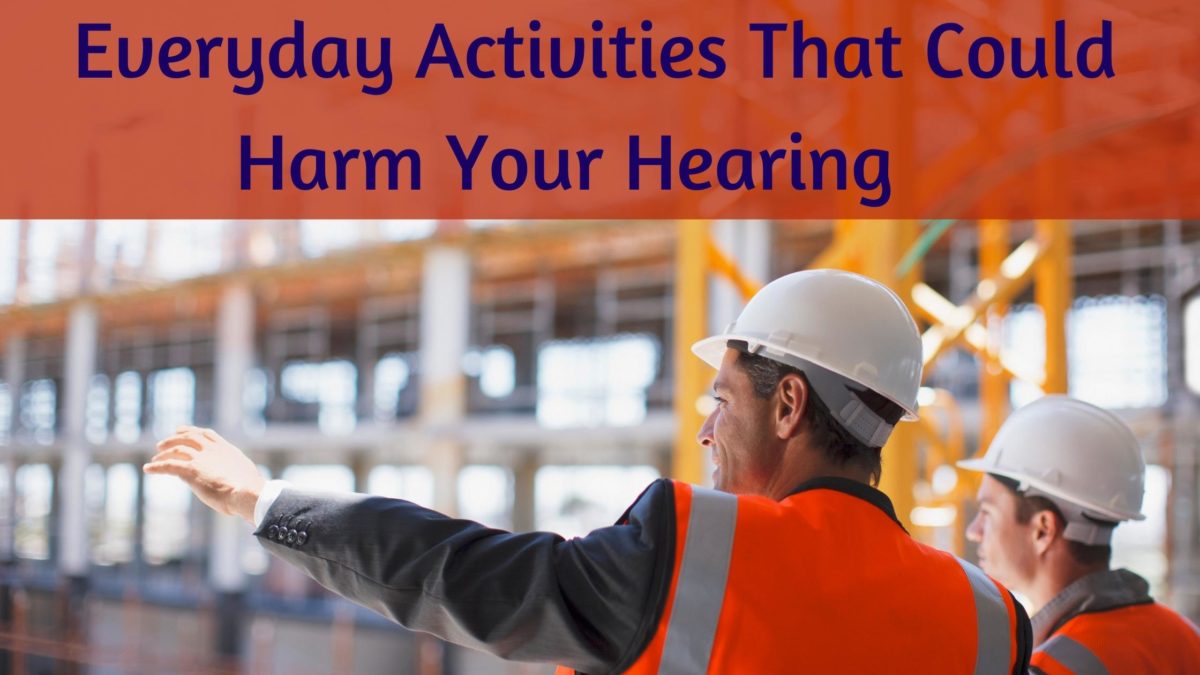Imagine waking up on a leisurely weekend morning, blending a fresh smoothie and getting outside right away to work in your woodshop and mow the lawn. Before you know it it’s time to jump in the shower, blow-dry your hair and head out to listen to some live music in the park.
Sounds fun right? While it may have the makings of a great day, it also has a lot of opportunities to expose your hearing to dangerous noise levels that can result in permanent hearing loss. More often than we usually acknowledge, our everyday activities put our hearing at risk.
From the blender to the machinery in the woodshop to the lawnmower to the hairdryer to the speakers at a live concert, there are many different moments in the day we inadvertently exposure ourselves to extremely loud noises that can harm our hearing.
Why Volume Matters
Usually, loud noises don’t cause physical pain so it is hard for people to recognize when loud sounds are actually hurting us. Your hearing relies on the performance of tiny sensory cells called “hair cells” that line the inner ear. Hair cells are delicate enough to pick up the subtle differences in the vibration of sound waves traveling through the air, and transmits the signals to the brain.
Hair cells are uniquely designed for their job, but their small size makes them vulnerable to damage. Ongoing loud sounds place stress on the hair cells, and can push them to a breaking point. Once damaged, the body has no way to repair or replace a hair cell and they become permanently “out of order”. If noise damage to the hair cells is allowed to accrue, significant hearing loss develops from the damage.
How Loud Is Too Loud?
Even when you recognize the threat that loud sounds pose to your hearing, it can still be hard to understand when hearing damage can occur. In general, the louder the volume of a sound is, the quicker it can cause harm to your hearing. Sound volume is measured in decibels (abbreviated “dB”) and the higher the decibels the louder the sound.
The sound level of 0 dB demarcates the softest sound that the human ear can detect and our hearing can hear noise up to 75 dB (about the noise level of moderate city traffic) without risking harm. At volumes above 75 dB, your hearing requires periodic rest to avoid harm. At 85 dB, the sound of a factory floor, hearing damage can occur after 8 hours of noise exposure. At volumes around 105 dB, about the volume of a rock concert, hearing harm can occur in under 15 minutes. Very loud volumes such as the noise level of gunshots or fireworks will register at around 120 dB and cause immediate hearing damage.
Our Noisy World
For many of us, loud noises are so common that it is difficult to recognize them as a potential problem. From the sound of a noisy commute, to the appliances that fill our homes to the hobbies we pursue, chances are your everyday routine involves multiple encounters with hazardous noise.
Transportation
Whether we’re talking about a rattling subway, a long flight or a daily commute on the highway, loud sounds abound. Heavy traffic can register at close to 90 dB, with the noise of trains, buses and planes coming in even louder. Recreational transport like dirt bikes, motorboats and snowmobiles often boast motors that deliver dangerous noise at close range.
Tools and Appliances
Many convenient and necessary home accessories are best used with hearing protection at hand. Power tools, especially electric saws, grinders, compressors and generators all run at dangerously loud volumes. Any well-planned home DIY project should include hearing protection.
Appliances can also emit harmful noise. Blenders and food processors, vacuum cleaners and window unit air conditioners can all run at intensely high volumes. Especially harmful is the noise from handheld hairdryers which blast noise directly toward the ear.
Entertainment
While you may be having a wonderful time, your hearing may be suffering in secret. Loud venues like busy restaurants combine kitchen clatter and human chatter to volumes louder than your average factory. Live concerts may pose an even bigger threat to your hearing health. Rock concerts usually deliver sound at volumes above 100 dB, which causes permanent hearing damage after only 15 minutes of exposure.
Don’t forget to check the volume on your media players at home! A home theater system, video games and listening to music through headphones can all lead to unsafe noise exposure.
If you are concerned about your hearing or want to learn more about hearing protection, contact us today! We provide comprehensive hearing services from testing to hearing aid fittings to hearing protection.

